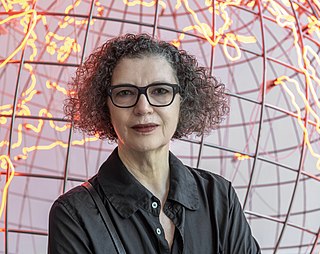A Quote by Pio of Pietrelcina
Love is the first ingredient in the relief of suffering.
Related Quotes
The first noble truth of the Buddha is that when we feel suffering, it doesn’t mean that something is wrong. What a relief. Finally somebody told the truth. Suffering is part of life, and we don’t have to feel it’s happening because we personally made the wrong move. In reality, however, when we feel suffering, we think that something is wrong. As long as we’re addicted to hope, we feel that we can tone our experience down or liven it up or change it somehow, and we continue to suffer a lot.
Your anxiety is your baby. You have to take care of it. You have to go back to yourself, recognize the suffering in you, embrace the suffering, and you get relief. And if you continue with your practice of mindfulness, you understand the roots, the nature of the suffering, and you know the way to transform it.
Such exceptional suffering and calamity, then, affecting the hero, and-we must now add-generally extending far and wide beyond him, so as to make the whole scene a scene of woe, are an essential ingredient in tragedy and a chief source of the tragic emotions, and especially of pity. But the proportions of this ingredient, and the direction taken by tragic pity, will naturally vary greatly.
Relief is a great feeling.It's the emotional and physical reward we receive from our bodies upon alleviation of pain, pressure and struggle. A time to bask in the lack of the negative.And yet, think about it—relief is really the status quo, a negation of the suffering, a nothing in itself. It is the way things were before the pressure and struggle began.So, is it a step back? A regression?Or is it an opportunity to regroup, start over, and move in a different direction?Use your moment of relief well.
I'm often asked the same question: What in your work comes from your own culture? As if I have a recipe and I can actually isolate the Arab ingredient, the woman ingredient, the Palestinian ingredient. People often expect tidy definitions of otherness, as if identity is something fixed and easily definable.
The world is full of suffering. Birth is suffering, decre- pitude is suffering, sickness and death are sufferings. To face a man of hatred is suffering, to be separated from a beloved one is suffering, to be vainly struggling to satisfy one's needs is suffering. In fact, life that is not free from desire and passion is always involved with suffering.
The suffering that food animals undergo, the suffering of those who eat them and profit by them, the suffering of starving people who could be fed with the grain that feeds these animals, and the suffering we thoughtlessly impose on the ecosystem, other creatures, and future generations are all interconnected. It is this interconnectedness of suffering, and its reverse, of love, caring, and awareness, that calls out for our understanding.









































